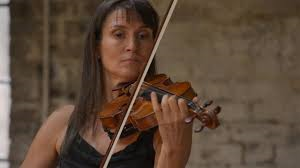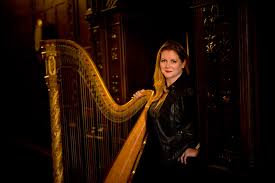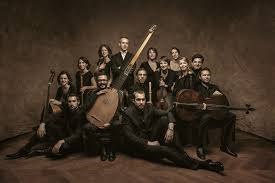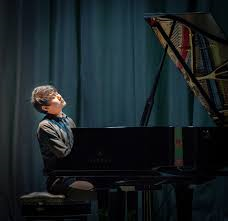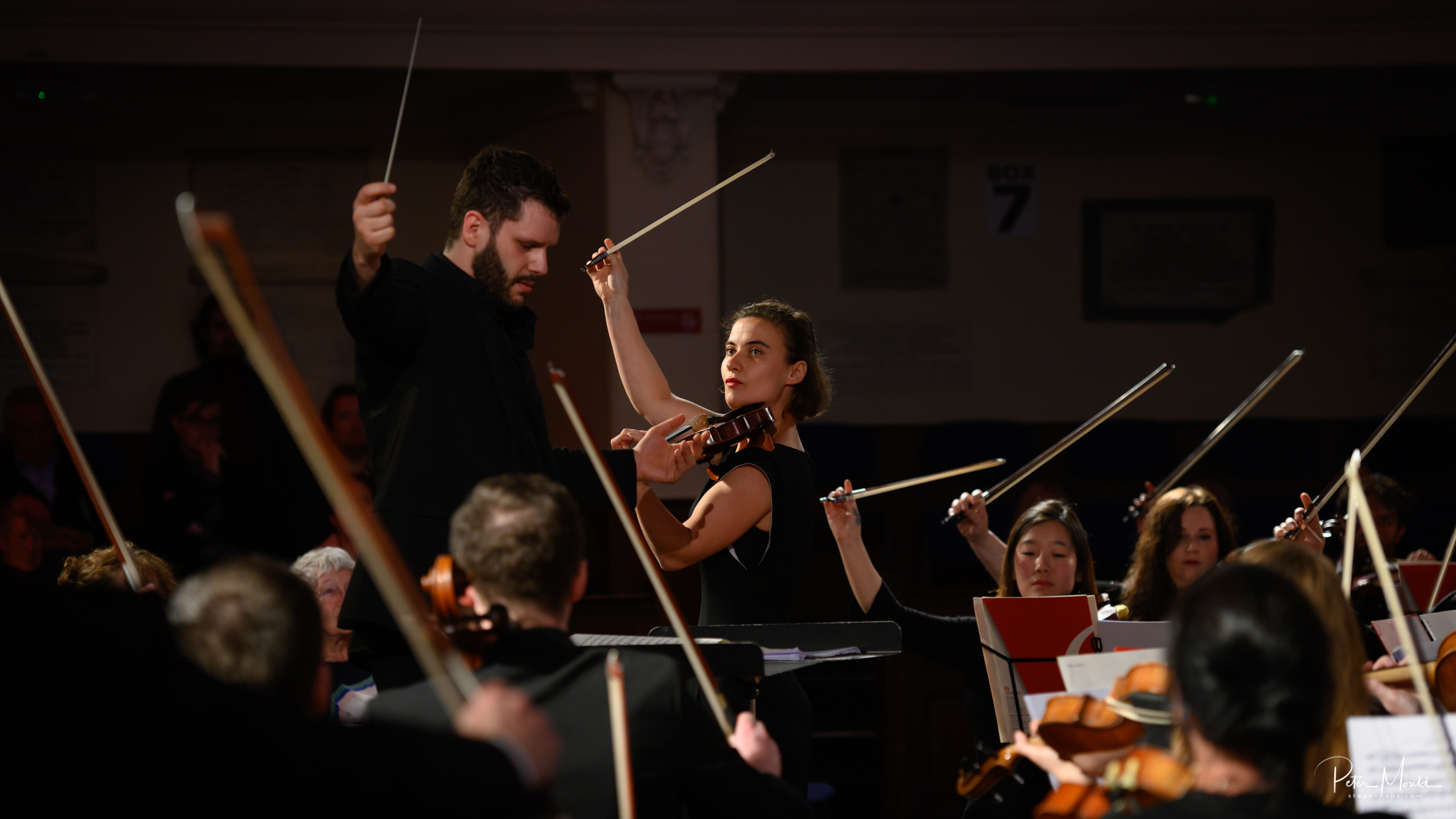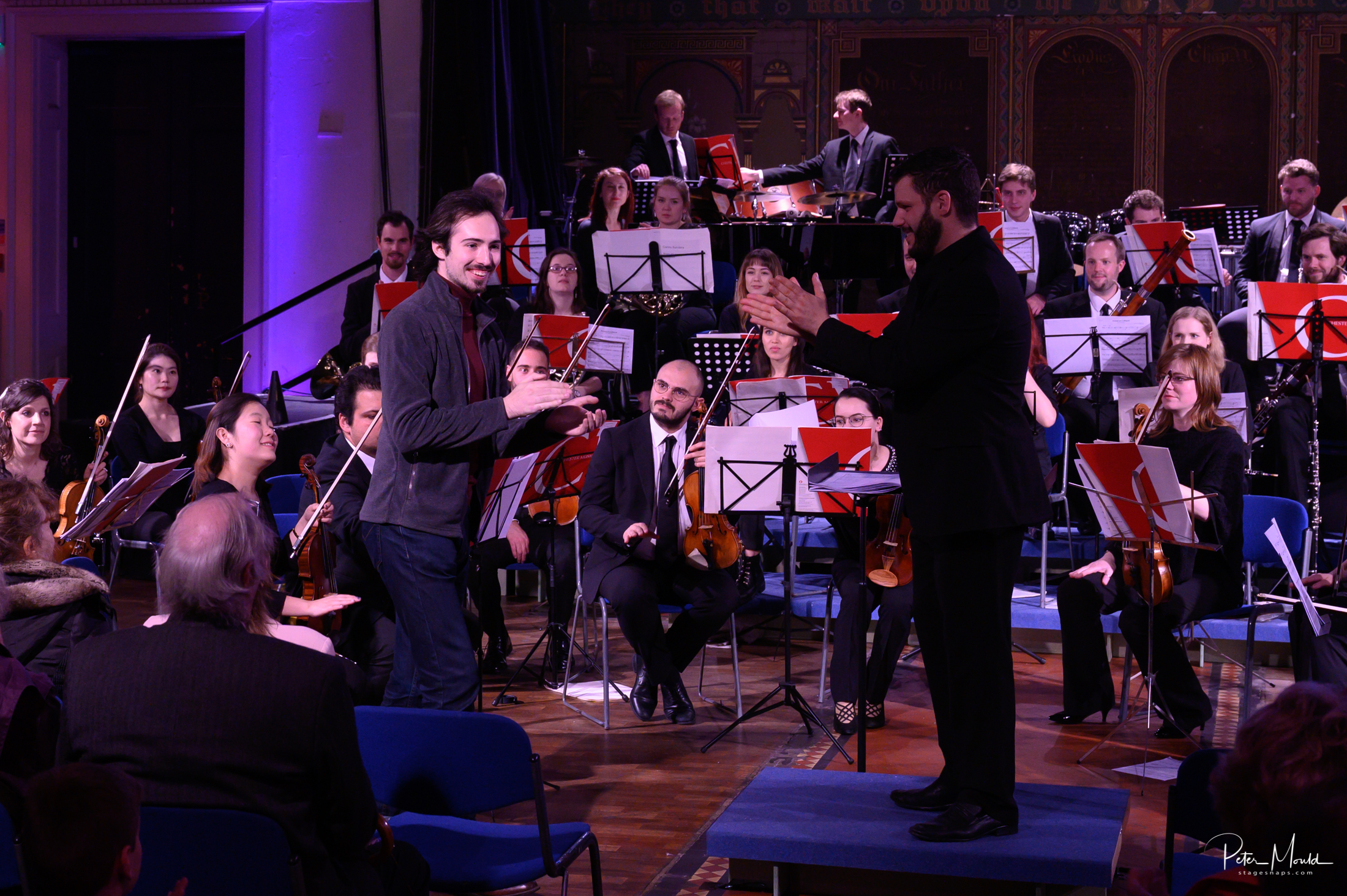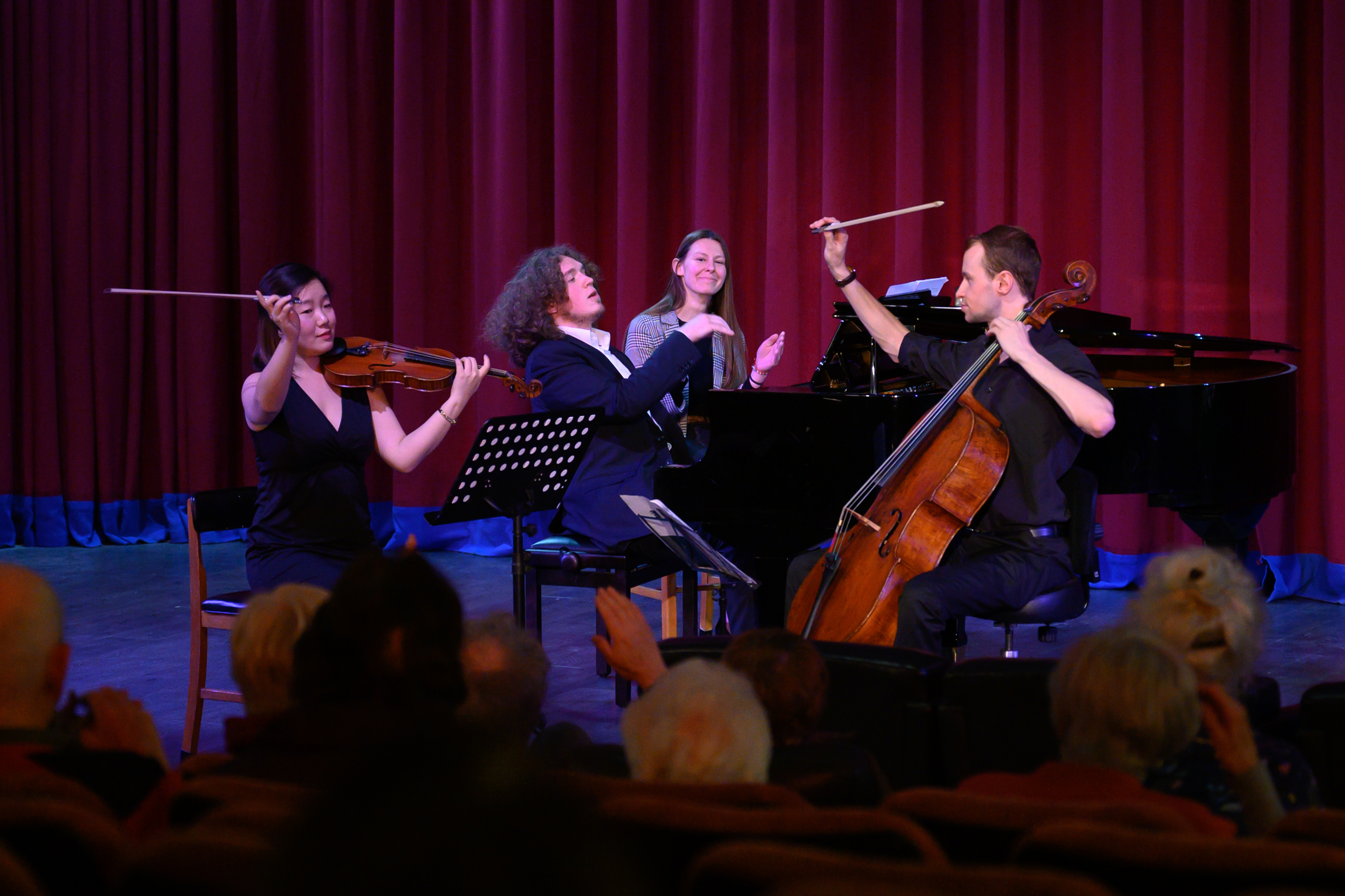Mahler: Symphony No 2 Resurrection
Vienna Philharmonic Orchestra, Andris Nelsons
UNITEL 748908
This is a live performance recorded as part of the 2018 Salzburg Festival. The ovation at the end is fully justified by this stunning event. Not only is the orchestral sound thrilling throughout, but Andris Nelsons shapes and controls the dynamic changes with great subtlety. The hushed entry of the chorus is almost inaudible, while the climaxes burst out in all their glory.
The recording also includes Zimmermann’s Concerto for Trumpet and Orchestra with Hakan Hardenberger the enthusiastic soloist. The work is based on Nobody knows de trouble I see but the variations are so complex listeners might be hard put to recognise the underpinning melody.
Music for Saint Katherine
The Binchois Consort, Andrew Kirkman
HYPERION CDA 68274
The Binchois Consort consists of tenor and male-alto voices and most of the a cappella music comes from the fifteenth century. The recording is linked to a project studying the alabasters of St Katherine and the music that these images inspired.
There is a wonderful fluency to the compositions which can become hypnotic in its impact. Highly recommended both for the music and the accompanying essay and pictures.
Johan Botha: Italian Opera Arias
ORFEO C 967192
Johan Botha’s sudden death in 2016 was a great loss to the Helden-tenor world, though his repertoire was much wider than the Wagnerian roles he was just beginning to make his own. Here we have live recordings from the Vienna State Opera taken from a wide range of Verdi , Puccini, Macagni and Giordano – with extended excerpts from Otello and Cavalleria Rusticana. If the sound quality varies slightly, this is a result of the staging not the voices, and makes no difference to the listeners enjoyment.
Havergal Brian: Symphonies 7 & 16; Overture,The Tinker’s Wedding
New Russia State Symphony Orchestra, Alexander Walker
NAXOS 8.573959
There was a time when Havergal Brian’s works could be heard quite regularly and I remember Prom concert performances while he was still alive. As they have become something of a rarity these days, despite their immediacy and musical integrity, this recording is all the more welcome. The overture to The Tinker’s Wedding is a lively piece which would sit easily on Classic FM or Scala. The 7th symphony, based on the life of Goethe, is the last of his larger compositions and he uses the large forces with consummate ease. By contrast the 16th symphony is briefer, more conservatively scored and acerbic in content.
Beethoven: Piano Sonatas Op 109, 110, 111
Steven Osborne
Hyperion CDA 68219
These three sonatas are the final ones Beethoven composed and form a deliberate set which is certainly best heard straight through. The eight movements then flow through to the inevitability of the sublime slow conclusion, rather than the more excitable inevitability which might be expected. Splendidly paced by Steven Osborne, using a modern Steinway, the sound is precise and moving throughout.
Richard Strauss: orchestral works
BBC Symphony Orchestra, Michael Collins
CHANDOS CHAN 20034
This is an eclectic mixture of less familiar works opening with the Burleske for piano and orchestra followed by the Duett-Concertino for clarinet, bassoon and strings with harp. The Romanze for clarinet and orchestra draws on the strengths of Michael Collins as both performer and conductor. The final piece is also the most substantial – the violin concerto with Tamsin Little as soloist. While all are interesting in themselves, and make up a satisfying recording, they are something of a specialist taste when set alongside Strauss’ major compositions.
Tartini: Sonatas Vol 3
Crtomir Siskovic, violin; Luca Ferrini, harpsichord
DYNAMIC CDS7824
Another hour of Tartini sonatas – all of them beautifully crafted and here lucidly played but unless one is a real expert it is going to be difficult to make a professional comment on the specific musical qualities of the individual works on offer.
Paladin: lute music
Alex McCartney, lute
Veterum Musica VM 22
This is very much a labour of love by lutenist Alex McCartney who notes he came across the works of Jean Paul Paladin by accident. His enthusiasm for the sixteenth century composer is more than justified in the beauty and fluidity of these pieces and his technical skill bringing them to life with such ease. A real pleasure.
Chopin; Piano Concertos 1 & 2
Hans Rosbaud, conductor, Nikita Magaloff, Hans Rcihter-Haaser pianos
Sudwestfunk-Orchester Baden-Baden
SWR CLASSIC SWR190776CD
It is not often that concerti are placed together because of the conductor rather than the soloist but here it is justified in these historic recordings, made in 1951 and 1961 respectively. There is little problem with the sound quality, even in the earlier concerto, and the intensity and sensitivity which Rosbaud brings to his approach more than compensates. More than simply a historical document, they present us with a vivid impression of orchestral sound half a century ago.
Elgar: String Quartet and Quintet
Brodsky Quartet, Martin Roscoe, piano
CHANDOS CHAN 10980
These lovely works still tend to be overlooked so it is good to have a new recording to remind us what fine pieces they are. Here the Brodsky Quartet brings out the complexity of the compositions – reflecting on the composer’s youthful string playing seen through the prism of the outcomes of WWI. The many changes of mood, alongside touchingly gentle melodies, are captured strongly here and enable us to engage with the emotionally entangled web which underpins the whole.
Alberto Nepomuceno: O Garatuja: Brazilian Suite: Symphony in G
Mineas Gerais Philharmonic Orchestra, Febio Mechetti
NAXOS 8.574067
I have to admit to knowing nothing of Nepomuceno before I listened to this new recording but was immediately delighted. The Brazilian composer pre-dates Villa-Lobos and was known to, and played by, Richard Strauss. He draws on Brazilian folk music but sets it within a late romantic framework, the potential tension between the two adding to the enjoyment of the works. Only the prelude survives of O Garatuja and it is apparently his most popular work – though I can’t recall ever hearing it in concert in the UK. A pity for it is a fine work and very well worth discovering. Buy it – you will not be disappointed.
Piazzolla: Time of life
Geir Draugsvoll, accordion; Metter Rasmussen, piano
NAXOS 8.573896
For those who only know Piazzolla for Libertango then this might come as something of an eye-opener. I have to admit to loving tango and so this is a very welcome recording, at once so engaging and yet so laid-back. The combination of classical accordion and piano could not be better, hinting both at the classical concert hall and the dive bar all at the same time. A real gem and thoroughly recommended.
Works for Horn: Schumann, Saint-Saens, Gliere
Markus Maskuniitty, horn; Royal Stockholm Philharmonic Orchestra, Sakari Oramo
ONDINE ODE 1339-2
Another collection of (almost) unknown delights. The longest work is Gliere’s Horn Concerto and a very late composition for the composer, dating from 1951, though it is entirely romantic in its structure. This sits alongside two works by Schumann – the Konzertstuck fur 4 Horner und Orchester and the Adagio & Allegro Op70 in an arrangement by Ernest Ansermet. Between them is Saint-Saens’ Morceau de concert. All very pleasing and far more engaging than a solo horn recording might at first appear to be.

